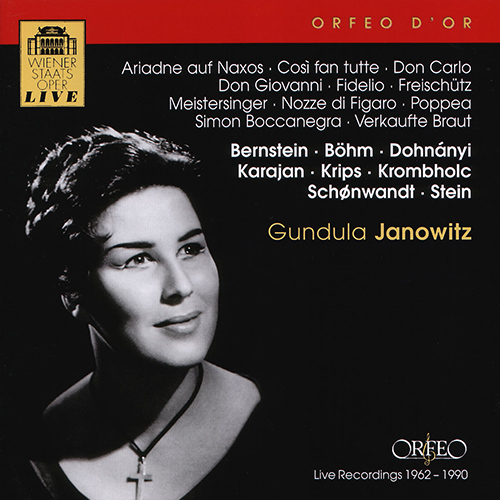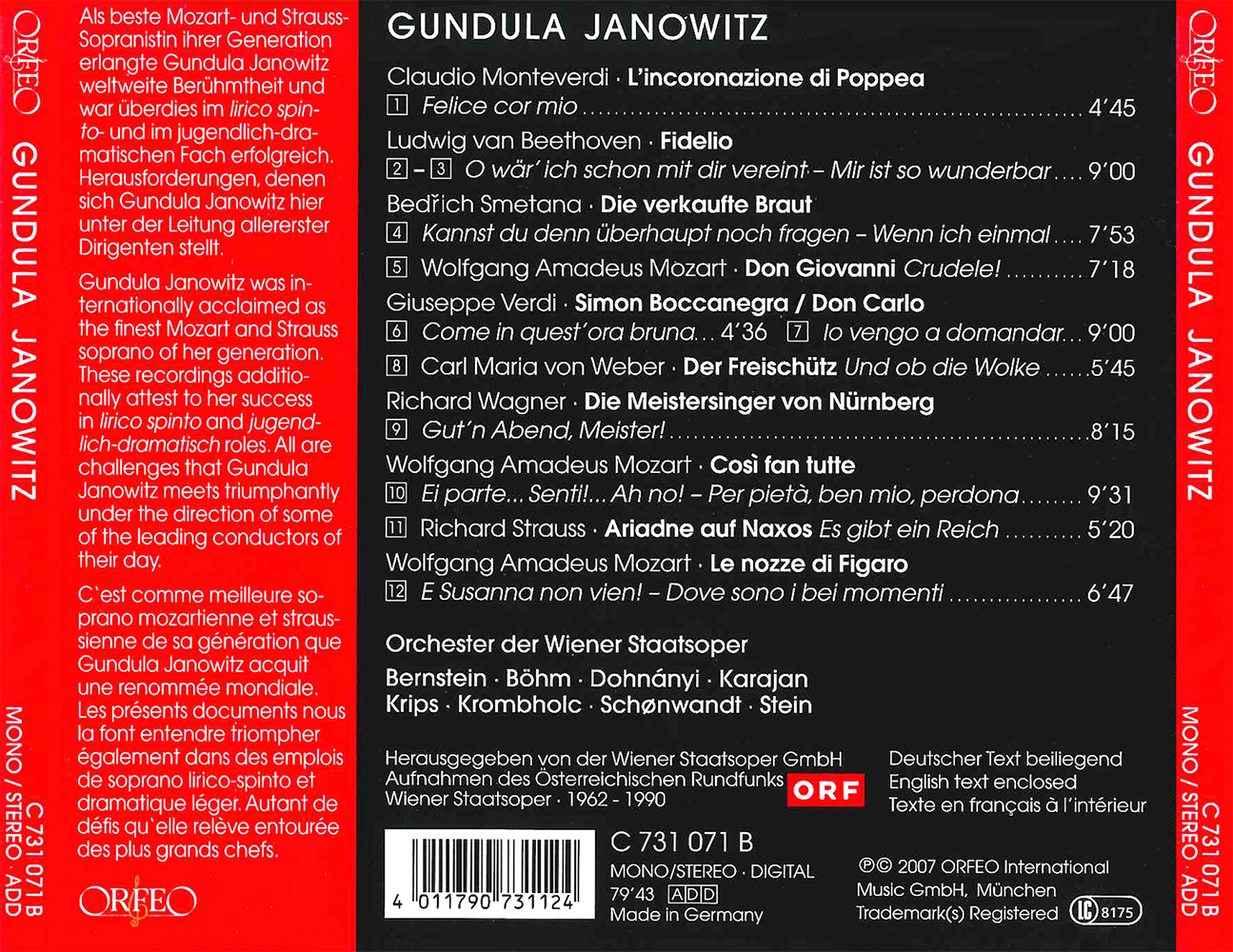Composer(s):
Conductor(s):
Orchestra(s):
Artist(s):
Genre(s):
Opera
Period(s):
20th Century; Baroque (1600-1750); Classical (1750-1830); Romantic
Label:
Orfeo
Catalogue No:
C731071B
Barcode:
4011790731124
Release Date:
01/2007
Available Format(s):
CD
Gundula Janowitz
Monteverdi, Claudio
L'incoronazione di Poppea, Act II: Felice cor mio
Beethoven, Ludwig van
Fidelio, Op. 72, Act I: Der arme Jaquino dauert mich - O war ich schon mit dir vereint
Fidelio, Op. 72, Act I: Mir ist so wunderbar
Smetana, Bedřich
Die verkaufte Braut, Act I: Kannst du denn uberhaupt noch fragen … Wenn ich das einmal erhafre
4. Die verkaufte Braut, Act I: Kannst du denn uberhaupt noch fragen … Wenn ich das einmal erhafre
07:53
Mozart, Wolfgang Amadeus
Don Giovanni, K. 527, Act II: Crudele … Non mi dir
Verdi, Giuseppe
Simon Boccanegra, Act I: Come in quest'ora bruna
Don Carlo, Act I: Io vengo a domandar grazia alla mia regina
Weber, Carl Maria von
Der Freischutz, J. 277, Act III: Und ob die Wolke sich verhulle
Wagner, Richard
Die Meistersinger von Nürnberg (The Mastersingers of Nuremberg), Act II: Gut'n Abend, Meister!
9. Die Meistersinger von Nürnberg (The Mastersingers of Nuremberg), Act II: Gut'n Abend, Meister!
08:15
Mozart, Wolfgang Amadeus
Così fan tutte, K. 588, Act II: Ei parte … senti … ah no! - Per pieta ben mio perdona
Strauss, Richard
Ariadne auf Naxos, Op. 60, TrV 228a: Es gibt ein Reich
Mozart, Wolfgang Amadeus
Le nozze di Figaro (The Marriage of Figaro), K. 492, Act III: E Susanna non vien! … Dove sono i bei momenti
12. Le nozze di Figaro (The Marriage of Figaro), K. 492, Act III: E Susanna non vien! … Dove sono i bei momenti
06:47
Total Playing Time: 01:18:08

















